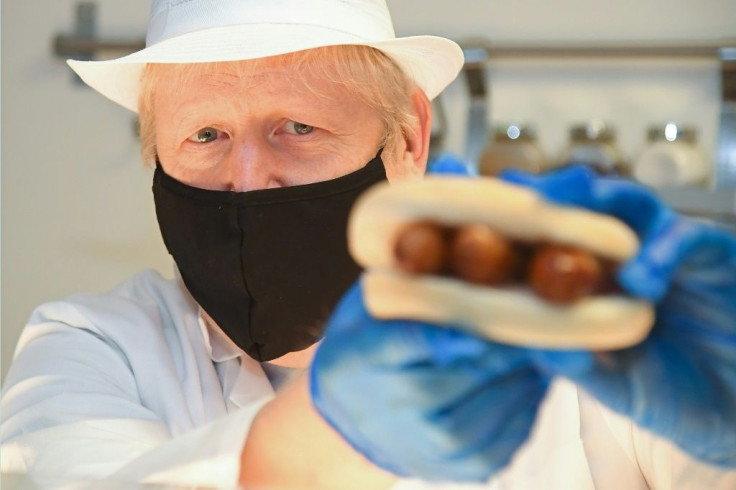Bangers And Clash: UK-EU Tempers Sizzle Over Post-Brexit Trade
The UK government on Tuesday defended the British banger amid reports of a possible "sausage war" with the European Union, sparked by a row over post-Brexit trade in Northern Ireland.
Brussels has already launched legal proceedings against the UK, accusing it of breaking the Northern Ireland Protocol by delaying customs controls on some goods imported from mainland Britain -- England, Scotland and Wales.
European Commission vice-president Maros Sefcovic vowed the bloc would retaliate if London took similar steps again, such as extending a grace period on checks on chilled meats, which is due to end later this month.
Prime Minister Boris Johnson's former newspaper the Daily Telegraph said the threat raised the spectre of a "sausage trade war" if Northern Irish shops were banned from selling British meat produce.
"If the UK takes further unilateral action over the coming weeks, the EU will not be shy in reacting swiftly, firmly and resolutely to ensure that the UK abides by its international law obligations," Sefcovic wrote in the broadsheet.
His comments came on the eve of crunch talks between Sefcovic and his UK counterpart David Frost in London and as world leaders, including US President Joe Biden and EU chiefs, head for a G7 summit in southwest England this weekend.
Biden, who is only the second Roman Catholic president in US history and proud of his Irish ancestry, will warn Johnson not to renege on the protocol when they hold their first in-person meeting as leaders, The Times reported.
It said Biden views the pact as an "integral part" of maintaining long-term peace in Northern Ireland and will also warn Johnson that his hopes for a US trade deal will be damaged if the fraying situation is not settled.
But the US president is also expected to tell the EU to be less "bureaucratic" and more flexible implementing the protocol, according to the newspaper.
Britain officially left the EU after nearly five decades of membership in January 2020, but under the terms of the divorce, relations remained unchanged until the start of this year.

Since then, London and Brussels have been trading on new terms, with the protocol effectively keeping Northern Ireland in the EU customs union and single market for goods, as it shares the UK's only land border with the bloc.
The tailored arrangements are designed to sustain Northern Ireland's fragile peace, after three decades of conflict largely ended in 1998, and keep the border open with EU-member Ireland.
But it is sowing discontent in the province, particularly among unionists, who see port checks on British imports as a threat to Northern Ireland's status as part of the UK.
New paperwork required is also having a practical impact, with red tape costing businesses time and money -- and compounding stress caused by the pandemic.
The British government wants greater flexibility from Brussels.
Environment Secretary George Eustice said the protocol requires both sides to make "best endeavours" to ease any issues that the new rules are throwing up.
"What we really need the EU to do is to respect that part of the protocol and put in place sensible measures," he told Sky News.
And he said he had "no idea" why the EU imposed "idiosyncratic" rules on the movement of chilled meats, calling doubts over the quality of British sausages "nonsense".
"I think we've got a very good sausage industry in this country, we've got the highest standards of food hygiene in the world," he told LBC radio.
"There's no problem with our sausages or indeed our chicken nuggets."
Sefcovic said the bloc had offered "tailor-made" solutions, in areas such as medicines, but there had been "numerous and fundamental gaps" in London's implementation of the special arrangements.
"Far from being inflexible, the EU has shown from the very beginning that we are willing to find creative solutions when required," he said.
"But we cannot do this alone. It has to be a joint endeavour between the EU and the UK."
© Copyright AFP {{Year}}. All rights reserved.





















